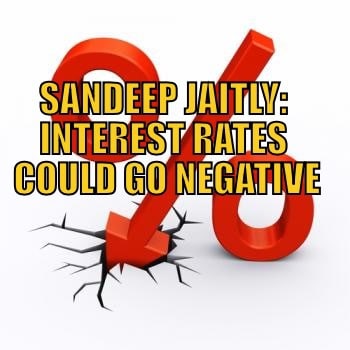Max Keiser interviews Sandeep Jaitly of Fekete Research.
Sandeep always has some insightful things to say if Max Keiser will let him get a word in.
As usual Keiser is pushing his own barrow but still gives Sandeep the opportunity to comment on a number of interesting topics like:
- How the Chief Economist of the Bank of England (BoE) says Interest Rates can go negative.
- How Jaitly thinks he is right.
- How they might introduce negative interest rates in order to help pay for the bad deeds of the banks.
- How older generation may be given a tiny interest rate. While professional people will have a negative interest rate on their bank balances.
- What else can they do, given that people aren’t spending their money? We can’t expect anything different.
- Scandinavian countries haven’t complained yet so therefore the UK and others will follow.
- How this is not so different from the old Soviet Union.
- Why this is and also isn’t the best time in history to borrow money.
- How we’ve seen China offloading US treasuries. While most assumed this was to defend their currencies, at the same time they bought 19.3 tonnes of gold in July and 16.2 tonnes in August. So perhaps China are buying gold with their treasury proceeds.
- One argument for this is that if you look at the gold values of their treasury holding it reached a peak in August. So if they wanted the most gold for their buck that was the time to do it.
- How he thinks the western governments have gold claims on their books, not necessarily gold reserves. That is they’ve loaned their gold out but still keep it on their books.
- How central banks do appear to have taken us back to the stone age as the Fed can’t even raise rates 0.25%.
- If central banks can never raise rates again, what does that mean?
- We all have to think about how we accommodate ourselves for that. If you think that dollars will [not] always have spending power “then get rid of it, spend it!”
- Finally they discuss the interesting concept of how ever lower interest rates mean that to get the money back fr0m a treasury bond takes 40 years. Which means you are artificially creating value in that productive land well beyond the natural use for which it has. [Our take on this is that Sandeep means in the past loans were taken out to cover a finite period that was in line with a natural cycle of production and would have been for months or a few years. Not 4o years].
For more from Sandeep on how Fractional Reserve banking once worked and how it is not the problem in and of itself, check out this article:

